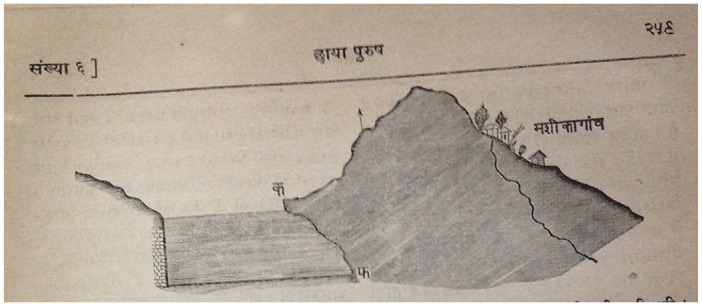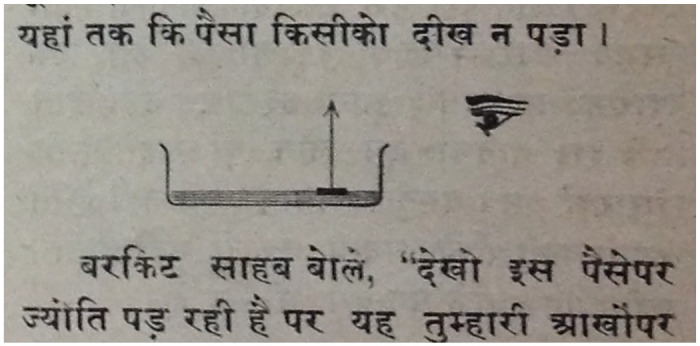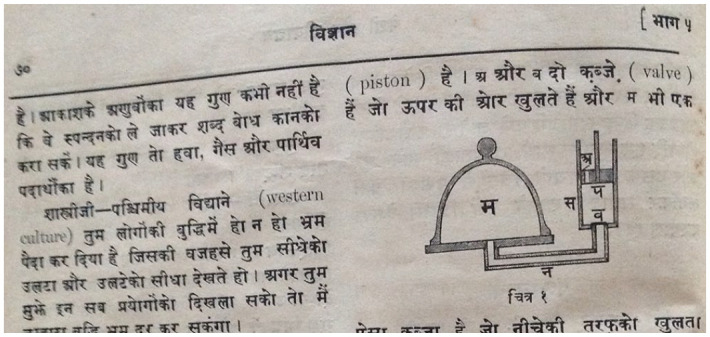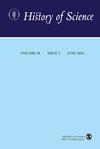沙斯特里和气泵:北印度殖民地印地语读者的实验小说和实验小说。
IF 0.8
3区 哲学
Q2 HISTORY & PHILOSOPHY OF SCIENCE
引用次数: 2
摘要
20世纪初,方言科学期刊成为南亚殖民地培养科学素养公众的关键媒介。本文认为,在20世纪10年代中期,印地语科学月刊《Vigyan》成为了语言、文学类型、叙事情节和背景实验的话语实验室,为印地语读者创造了以文化为基础的科学课程。我关注的是Prem Vallabh Joshi的作品,他是一位学者、理科毕业生和小镇教师,他尝试了不同的文学类型,在Vigyan的读者中创造了一种对科学的敏感性——一种实验性的脾气。通过他对科学实验在某一特定知识分支的“历史”、侦探悬疑和虚构对话类型中的战略性运用,乔希将殖民地读者引入了实验文化和全球科学现代性。作为殖民社会中“西方”科学与印度教śāstra持续对抗的反身参与者,Joshi在标志性气泵的实验演示与śāstra的文本权威之间上演了一场虚构的相遇。这篇文章探讨了在语言民族主义时代,在维格扬,神圣的承诺和科学的情感以及它们的联合动员之间的相遇。在这种殖民地白话出版文化中,期刊的系列可能性和科学史本身成为实验科学与传统权威之间本体论对抗的关键资源。本文章由计算机程序翻译,如有差异,请以英文原文为准。



The shastri and the air-pump: Experimental fictions and fictions of experiment for Hindi readers in colonial north India.
In the early twentieth century, the vernacular science periodical emerged as a key medium for building science-literate publics in colonial South Asia. This article argues that the Hindi science monthly Vigyan became a discursive laboratory for experiments with language, literary genres, narrative plots, and settings to create culturally grounded science lessons for Hindi readers in the mid-1910s. I focus on the writings of Prem Vallabh Joshi, a pandit, science graduate, and small town teacher, who experimented with distinct literary genres to create a sensibility for science – an experimental temper – amongst Vigyan’s readers. Through his strategic use of scientific experiments in the “history of” a particular branch of knowledge, detective mysteries, and the genre of the fictionalized dialogue, Joshi inducted colonial readers into experimental culture and global scientific modernity. As a reflexive participant in the ongoing confrontation between “Western” science and Hindu śāstra in colonial society, Joshi staged a fictional encounter between the experimental demonstration of the iconic air-pump and the textual authority of śāstra. This article examines the encounter between sastric commitments and scientific sensibilities and their conjoined mobilization in Vigyan in the era of linguistic nationalism. In this colonial vernacular publishing culture, the serial possibilities of the periodical and the history of science itself became critical resources in the ontological confrontations between experimental science and traditional authority.
求助全文
通过发布文献求助,成功后即可免费获取论文全文。
去求助
来源期刊

History of Science
综合性期刊-科学史与科学哲学
CiteScore
1.50
自引率
0.00%
发文量
15
审稿时长
>12 weeks
期刊介绍:
History of Science is peer reviewed journal devoted to the history of science, medicine and technology from earliest times to the present day. Articles discussing methodology, and reviews of the current state of knowledge and possibilities for future research, are especially welcome.
 求助内容:
求助内容: 应助结果提醒方式:
应助结果提醒方式:


